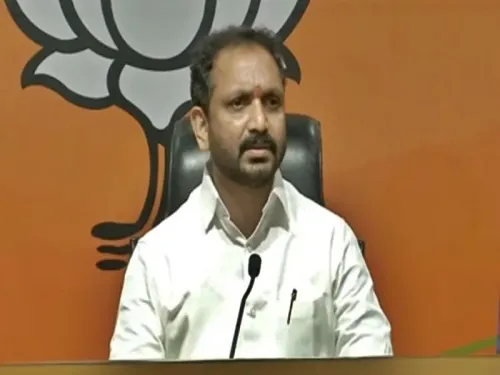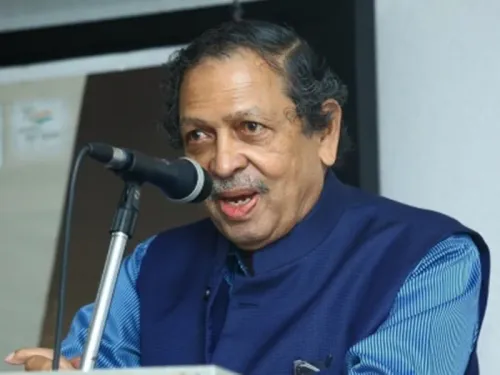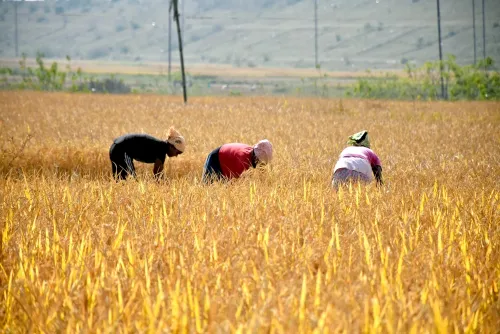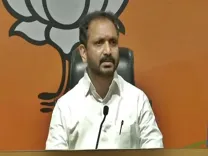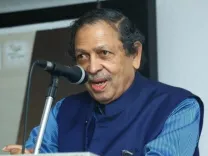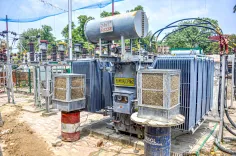India Upholds Firm Stance Against Terrorism: Defence Secretary
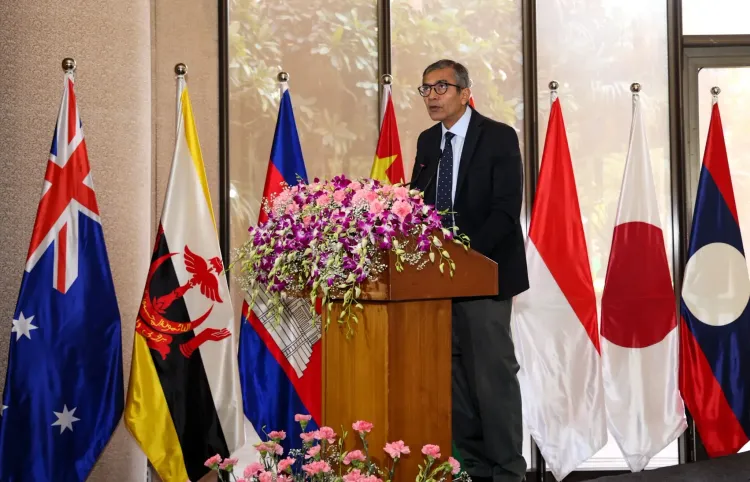
Synopsis
Key Takeaways
- India's zero-tolerance stance on terrorism is reaffirmed.
- Collaboration among ASEAN nations is crucial for security.
- Emerging technologies pose new challenges for counter-terrorism.
- India will host a significant counter-terrorism exercise in 2027.
- Strengthening legal frameworks is essential to disrupt terror financing.
New Delhi, March 19 (NationPress) Defence Secretary Rajesh Kumar Singh announced on Wednesday that India maintains a zero tolerance stance against terrorism.
During his keynote speech at the 14th ASEAN Defence Ministers' Meeting (ADMM)-Plus Experts Working Group (EWG) on Counter-Terrorism held in New Delhi, he reaffirmed this commitment.
He stated, "India remains unwavering in its zero-tolerance policy towards terrorism and advocates for an approach that integrates strong domestic frameworks, improved intelligence sharing, and robust regional cooperation."
The meeting saw participation from delegations representing 10 ASEAN countries—Brunei, Cambodia, Indonesia, Laos, Malaysia, Myanmar, The Philippines, Vietnam, Singapore, and Thailand—as well as eight dialogue partners, including Australia, New Zealand, South Korea, Japan, China, The US, Russia, along with Timor Leste and the ASEAN Secretariat.
This marks India's first time co-chairing the EWG on Counter-Terrorism.
The Defence Secretary highlighted, "Terrorism presents a dynamic and evolving challenge, with threats increasingly crossing borders. The utilization of advanced technology, cyber tools, and unmanned systems by terrorist organizations necessitates a comprehensive, forward-thinking, and action-oriented strategy. The Indo-Pacific region, due to its geopolitical and economic importance, is particularly susceptible to transitional terrorism and violent extremism, prompting the need for a thorough, adaptable, and highly collaborative response."
He stressed that through the ADMM-Plus framework, India aims to enhance collaboration among defense forces, security agencies, and policy structures to effectively tackle emerging threats.
"In a complex, hyper-connected, and fast-paced world, social and ecological systems are delicate. Assessing risks is vital to empower governments in prioritizing and decision-making. Terrorism can destabilize governments, undermine civil society, and threaten social and economic progress. We have a collective responsibility to guide decision-makers in navigating uncertainty and effectively evaluating impacts on decision-making," Singh asserted.
The ADMM-Plus EWG on Counter-Terrorism is co-chaired by India and Malaysia for a three-year duration.
Singh remarked, "By harnessing our shared expertise, enhancing capacity-building, and nurturing deeper trust and collaboration, we can significantly fortify regional security and counter-terrorism readiness."
According to Singh, the focus of the EWG on Counter-Terrorism will be on bolstering regional collaboration and enhancing interoperability among the Armed Forces through structured joint initiatives.
He added, "The goal will be to counter the exploitation of emerging technologies and address threats posed by terrorists utilizing AI-driven propaganda, encrypted communications, and drone technologies. Strengthening cyber resilience against online radicalization and recruitment efforts will also be a focal point."
In 2027, India plans to host a field training exercise designed to simulate real-world counter-terrorism scenarios, enhance operational coordination, and test rapid response systems.
He called for a comprehensive approach involving both government and society to combat radicalization and violent extremism while enhancing legal and financial frameworks to disrupt networks that finance terrorism.
Singh also congratulated Malaysia for taking on the chairmanship of ASEAN in 2025, pledging India's full support.
He recognized Malaysia's effective leadership of ASEAN amid the current geopolitical landscape, focusing on the theme of 'Inclusivity and Sustainability'.
He expressed that India is honored to co-chair this vital initiative alongside Malaysia.
Singh characterized India's relationship with ASEAN as a cornerstone of its foreign policy and a pivotal aspect of the 'Act East Policy'.
He reaffirmed India's strong commitment to a stable and unified ASEAN, which serves as an institutional cornerstone for a significant region.

